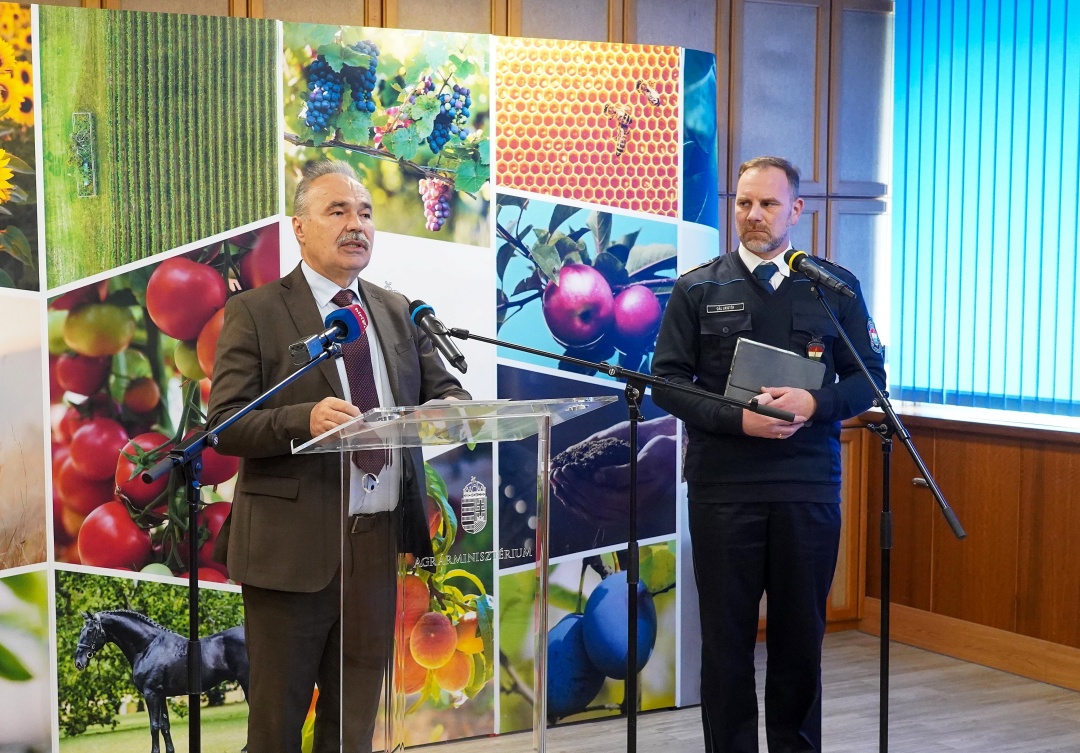
István Nagy confirmed that no new infections had been detected.Continue reading

Agriculture Minister István Nagy has assessed the measures taken to combat foot-and-mouth disease (FMD) as effective. In his report to the National Assembly’s Agricultural Committee on Tuesday, he said that if there are no new infections, then immunity can be announced on May 30, and the European Union restrictions imposed on Hungary can be lifted on June 30.
István Nagy noted that the incubation period of the virus is two weeks, so if there are “no new outbreaks” by the weekend, then “we can practically say that Hungary is free of the contagious foot-and-mouth disease virus.” At the same time, he warned that we must continue to work very hard, and that, given the news from Slovakia, “we cannot let our guard down,” but must do everything possible to prevent the African swine fever virus from entering Hungary.
In his report, the Minister assessed that the infected animals had been slaughtered in accordance with the strictest safety regulations and with the utmost discipline, that the police had been deployed to guard the farms, and that the army’s chemical defense unit had assisted in the disinfection.
Nagy recalled that the virus and the epidemic affected the county of Győr-Moson-Sopron (northwestern Hungary), and due to the long distance, it was not possible to transport the carcasses to the animal crematorium in Solt, Bács-Kiskun county (central Hungary). Therefore, the internationally approved solution was adopted to bury the animals in safe conditions, he said, emphasizing that the work of the operational staff was very difficult, as there was no settlement in Hungary that would have welcomed this.
The operational team therefore decided that burials would take place at sites that had been designated for this purpose for decades; all such sites were checked, tested, and documented from a geological and hydrological point of view to ensure that the animals could be disposed of safely and practically through bio-composting,
he explained. He added that the pits were dug to a depth of seven meters, with the groundwater level two to three meters below that.
He acknowledged, however, that the destruction of the animals caused the greatest social discontent, and that they also had to contend with people wanting to stir up hysteria about it or wanting to show scenes that would attract large audiences, without considering that the civilian population was not prepared for such a sight.
The Minister said that they were in constant consultation with the owners of the five farms affected in Hungary, that disinfection was currently underway in several stages, and that preparations for compensation had also begun. He pointed out that
the basic principle of defense and state compensation is to encourage a fresh start and provide all possible support to enable these farms to resume production as quickly as possible.
He indicated that in order to preserve the jobs of those working on the affected farms, the government has made it possible for employers to pay their wages from the Wage Guarantee Fund, and has also stipulated that the amount taken from the fund should be included in the total compensation amount, so that it will effectively remain with the owner and will not have to be repaid. He also said that negotiations were underway with the Ministry for National Economy to order a credit moratorium for the affected farms and to help farmers with their financial liquidity through other means. He emphasized that
they want to encourage the start of restocking within at least one year, and that by the end of the third year, the farms should reach the level they were at when the disease first appeared.
Via MTI, Featured photo via Pixabay